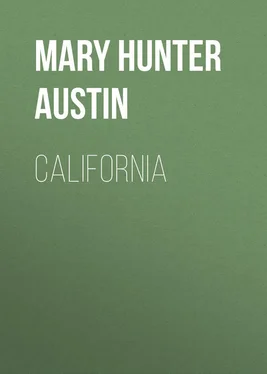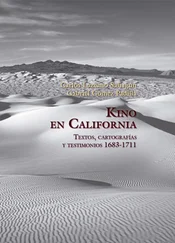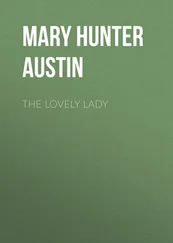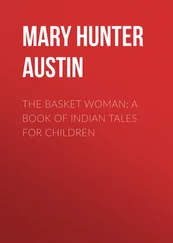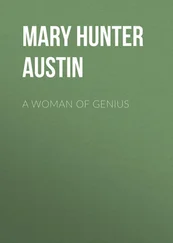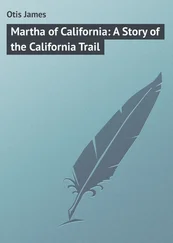Mary Austin - California
Здесь есть возможность читать онлайн «Mary Austin - California» — ознакомительный отрывок электронной книги совершенно бесплатно, а после прочтения отрывка купить полную версию. В некоторых случаях можно слушать аудио, скачать через торрент в формате fb2 и присутствует краткое содержание. Жанр: foreign_antique, foreign_prose, на английском языке. Описание произведения, (предисловие) а так же отзывы посетителей доступны на портале библиотеки ЛибКат.
- Название:California
- Автор:
- Жанр:
- Год:неизвестен
- ISBN:нет данных
- Рейтинг книги:4 / 5. Голосов: 1
-
Избранное:Добавить в избранное
- Отзывы:
-
Ваша оценка:
- 80
- 1
- 2
- 3
- 4
- 5
California: краткое содержание, описание и аннотация
Предлагаем к чтению аннотацию, описание, краткое содержание или предисловие (зависит от того, что написал сам автор книги «California»). Если вы не нашли необходимую информацию о книге — напишите в комментариях, мы постараемся отыскать её.
California — читать онлайн ознакомительный отрывок
Ниже представлен текст книги, разбитый по страницам. Система сохранения места последней прочитанной страницы, позволяет с удобством читать онлайн бесплатно книгу «California», без необходимости каждый раз заново искать на чём Вы остановились. Поставьте закладку, и сможете в любой момент перейти на страницу, на которой закончили чтение.
Интервал:
Закладка:
California The Land of the Sun
I
THE SPARROW-HAWK'S OWN
For a graphic and memorable report of the contours of any country, see always the aboriginal account of its making. That will give you the lie of the land as no geographer could sketch it forth for you. California was made by Padahoon the Sparrow-Hawk and the Little Duck, who brooded on the face of the waters in the Beginning of Things.
There is no knowing where the tale comes from, for Winnenap the Medicine-Man who told it to me, was eclectic in his faiths as in his practice. Winnenap was a Shoshone, one of the group who had been forced southward into Death Valley when the great Pah Ute nation had split their tribes like a wedge. In the last of their wars he had been taken as a hostage by the Paiutes and brought up by them. He might have remembered the story, or his wife might have told him. She was a tall brown woman out of Tejon, and her mother was of that band of captives taken from San Gabriel by the Mojaves, Mission-bred. Wherever it came from, the tale has its roots deep in the land it explains.
Padahoon, being wearied of going to and fro under the heavens, said to the Little Duck that it was time there should be mountains; so the Little Duck dived and brought up the primordial mud of which even the geographers are agreed mountains are made.
As he brought it the Sparrow-Hawk built a round beautiful ring of mountains enclosing a quiet space of sea. Said the Little Duck, "I choose this side," coming up with his bill full of mud toward the west. Whereupon the Sparrow-Hawk built the other side higher. When it was all done and the Little Duck surveyed it, he observed, as people will to this day, the discrepancy between the low western hills and the high Sierras, and he thought the builder had not played him fair. "Very well, then," said the Sparrow-Hawk, "since you are resolved to be so greedy," and he bit out pieces of the Sierras with his bill, and threw them over his shoulder.
You can see the bites still deep and sharp about Mt. Whitney.
But the Little Duck would not be satisfied; he took hold by the great bulk of Shasta and began to pull, and Padahoon pulled on his side until the beautiful ring was pulled out in a long oval and began to break on the west where the bay of San Francisco comes in. So they were forced to divide the mountain range north and south and make what they could of it. But the Sparrow-Hawk, remembering the pieces he had thrown over his shoulder, chose the south, where you can still see him sailing any clear day about four in the afternoon, over all his stolen territory.
There you have the bones of the land as neatly laid out for you as they could do it in Kensington Museum: the long oval, breaking seaward, the high, bitten, westward peaks, and the Sparrow-Hawk's Own, tailing south like the quirk of an attenuated Q.
They serve, these fragmentary ranges, for the outposts of habitableness between the sea wind and the forces of pure desertness. Always there is skirmish and assault going on about them. Showers rush up the slope of San Jacinto, all their shining spears a-tilt. Great gusts of wind roar through the Pass of San Gorgiono, the old Puerto de San Carlos. Seasonally they are beleaguered by stealthy rushes of the fogs that from the Gulf hear the peaks about Whitney calling, or by the yellow murk of sand-storms on which the whole face of the desert is lifted up as it travels toward its destiny in orchard row and vineyard. Always the edge of the wind is against the stone. They shine, the frontlets of the sentinel saints, in that keen polish, as the faces of saints must with benignity.
Just beyond the pilæ of the broken mountains – the Pillars of Hercules of the West – the desert winds about the eastern bases of the range in deep indented bays, white-rimmed with the wave marks of its ancient sea. Out a very little way, where the shuddering heat-waves trick the imagination, it seems about to be retaken by the ghost of tumbling billows. Nothing else moves in it; nothing sounds. Plantations of growing things near the Pass lean all a little toward it, edging, peering – the wild, spiny, thorny things of the desert to enter the rain-fed paradise, the full-leafed offspring of the sea wind plotting to take the unfriended sandy spaces. They creep a little forward or back as the years run wet or dry. The green things stand up, they march along the cliffs, they balance on the edge of precipices, but desperation is in every contorted stem of mesquite and palo verde . And with all this struggle, so still! East on the desert rim the Colorado ramps like a stallion between its walls, westward the Pacific rings the low foreshore with thunder; but the land never cries out, quartz mountains disintegrate but they do not murmur.
It is odd here in a land rife with the naked struggle of great pagan forces, to find the promontories so lend themselves to the gentle names of saints. Perhaps the Padres were not so far from nature as one thinks; in the southerly range which, with San Bernardino on the north, sentinels the Pass by which the iron-rimmed Emigrant trail enters the coast valleys, they rendered for once the pagan touch. San Jacinto – St. Hyacinth – was he ever anything but a Christianised memory of a Grecian myth, or does it matter at all so long as there are men to see, in the deep purple light that dies along the heights, the colour of blood that is shed for love? Perhaps the best thing beauty can say to Greek or Christian is that there are still things worth dying for. No doubt the veins of Padre Jayme Bravo were as rich in martyr passion as the stained air of the mountain is in purples, paling to rose at morning, thinning at noon to pure aerial blues.
Seen from the coast the range has a finny contour as of some huge creature risen from the sea, with low hills about it like dolphins playing; but the prevailing note of the landscape is always blue, repeating the tints of the wild brodiæa that may be found on the lomas early in April, sending up its clustered heads between two slender curving spears.
Near at hand the masking growth is seen to be green, the dark olivaceous green of the chamisal. Nowhere does one get the force of the Spanish termination al – the place where – as in that word. The chamisal is the place of the chamise: miles and miles of it, with scarcely another shrub allowed, spread over the mesa and well up into laps and bays of the hills. It grows breast high, man high in the favoured regions; but even where under the influence of drouth and altitude it creeps to the knees, it abates nothing of its social character. Its ever-green foliage has a dull shining from the resinous coating which protects it from evaporation, and a slight sticky feel, characteristics that no doubt won it the name of "greasewood" from the emigrants who valued it chiefly because it could be burned green. The spring winds blowing up from the bay whip all its fretted surface to a froth of panicled white bloom, that, stirring a little as the wind shifts, full of bee-murmur, touches the imagination with the continual reminder of the sea. Higher up the thick lacy chaparral flecks and ripples, showing the light underside of leaves, and tosses up great fountain sprays of ceanothus, sea-blue and lilac-scented.
All the human interest of this region centres about the city on the bay of San Diego, a low locked harbour with a long spit of sand breaking the mild Pacific swell, as it bides its time for the shipping of the south-western world. It has already waited longer than most people suppose. Just fifty years after the landing of Columbus on the Bahamas, Cabrillo discovered it; Sir Francis Drake, romping up that coast with his buccaneers, must have seen it though he left no note of any visit, and in 1602 Sebastian Viscaino anchored there and gave it its present name. Just about the time the mixed Dutch and English on the Atlantic coast were beginning to think of themselves as Americans and to act accordingly, the Franciscan
Читать дальшеИнтервал:
Закладка:
Похожие книги на «California»
Представляем Вашему вниманию похожие книги на «California» списком для выбора. Мы отобрали схожую по названию и смыслу литературу в надежде предоставить читателям больше вариантов отыскать новые, интересные, ещё непрочитанные произведения.
Обсуждение, отзывы о книге «California» и просто собственные мнения читателей. Оставьте ваши комментарии, напишите, что Вы думаете о произведении, его смысле или главных героях. Укажите что конкретно понравилось, а что нет, и почему Вы так считаете.
